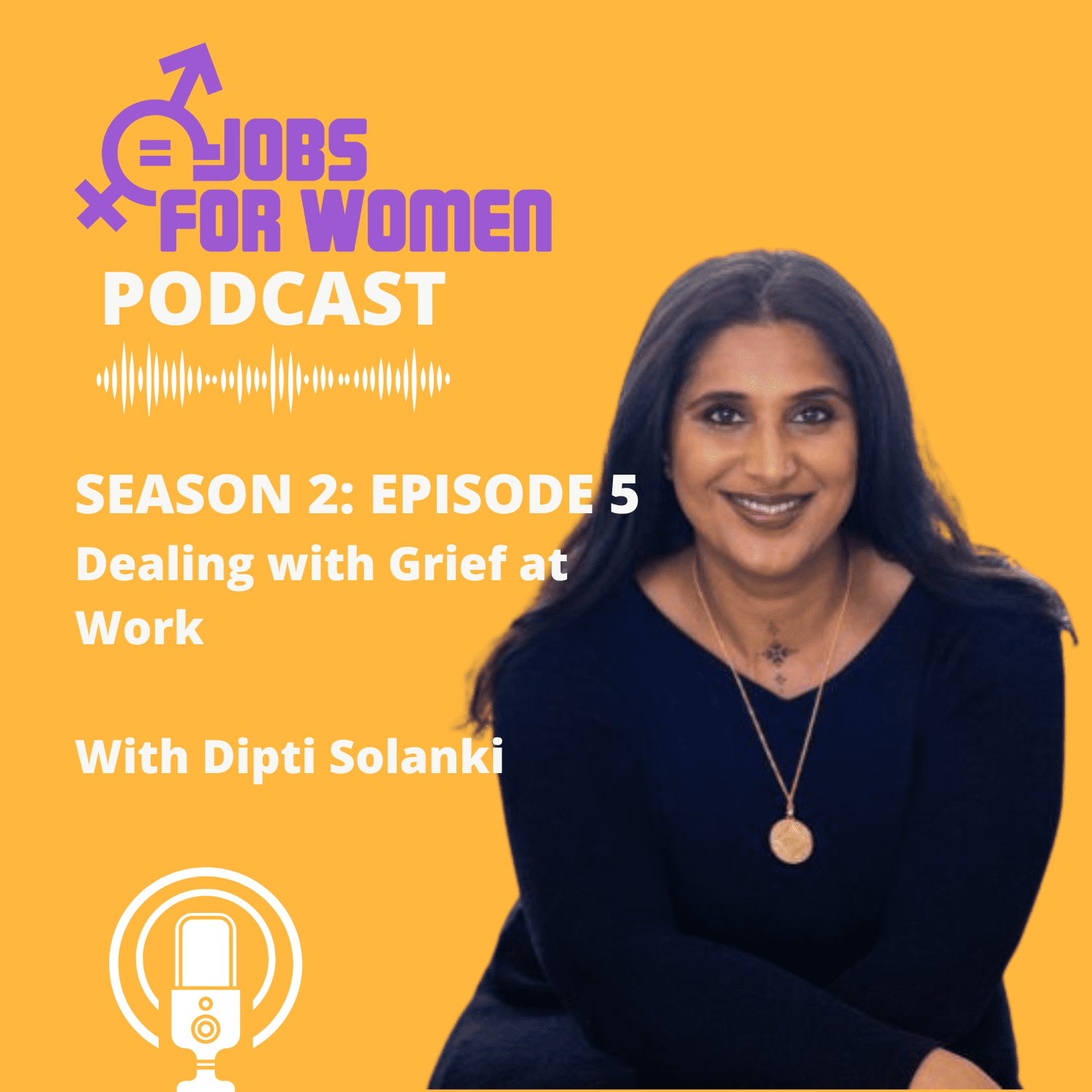
Dealing with Grief at Work
In the podcast, Zoe Haydn Jones, the host, has a deep and insightful conversation with Dipti Solanki, a grief coach. The two delve into the different aspects and perspectives of grief, including how it is not only related to bereavement but can also arise from various other experiences and life changes, such as changes at work, health issues, and even major life transitions like menopause.
The conversation starts with Zoe expressing her curiosity and fascination with grief and its subjective nature. Dipti then shares her personal journey, explaining how the sudden loss of her mother when she was 13 led her to become a grief coach. This loss, followed by a period of outward success and an eventual emotional breakdown, opened her eyes to the unprocessed grief she was carrying within her.
Dipti explains that everyone’s experience with grief is unique, influenced by factors such as upbringing, culture, and personality. She emphasizes the need to understand the underpinnings of one’s belief systems and early messages received during childhood. These aspects, she explains, often play a significant role in shaping one’s response to loss and grief.
Further, Dipti broadens the concept of grief beyond bereavement. She points out how changes in career, including promotions, demotions, or even shifts in working relationships, can trigger feelings of loss. Other life changes, like the transition to motherhood or menopause, can also cause significant shifts in one’s sense of self and life priorities, leading to experiences of grief.
Moreover, Dipti underlines the importance of a supportive workplace that understands and caters to the diverse experiences of grief its employees may be undergoing. Such support should include appropriate training for line managers, who play a crucial role in aiding their grieving subordinates.
The pair discuss the challenges faced by women, particularly during the perimenopausal and menopausal phases. These challenges can lead to career path shifts and cause significant grief.
Dipti discusses the complexities of unresolved grief and the wide range of emotional and physical symptoms that it can generate. She underscores that people often fail to identify their experiences as losses and hence do not process the associated emotions. This neglect tends to cultivate unresolved grief and symptoms such as anxiety, feeling stuck, and other physical manifestations.
Solanki introduces a method known as ‘decluttering of the heart.’ This practice involves helping her clients recognize, acknowledge, and release their losses, fostering self-understanding and personal growth. She notes that not all grief stems from an identifiable loss; people can experience grief even when everything seems fine on the surface. Such feelings are indicative of unprocessed emotions that need addressing.
The grief expert elucidates the wide range of symptoms associated with unresolved grief, from anxiety and anger to sleeplessness, physical heaviness, chronic fatigue, depression, and even digestive issues. To help manage these symptoms and the underlying grief, Solanki recommends the use of journaling as a powerful tool for self-discovery. Individuals can effectively acknowledge and deal with past traumas and unresolved issues by writing openly and exploring emotions with gentle curiosity.
Dipti also discusses the often-overlooked role of grief in the workplace. Employers may not recognise or understand the profound impact that grief can have on their employees. To improve this, she suggests implementing programs such as line manager training and the Grief Ambassador program. These initiatives can help foster a supportive environment and equip workplaces with the necessary tools to handle grief effectively.
Finally, Solanki reminds us that grief is not exclusively tied to death or a tangible loss. It can also be linked to significant life transitions, like becoming a mother. By acknowledging and addressing these experiences, individuals can better manage their emotions and successfully navigate life’s challenges.
Overall, the conversation offers an empathetic and profound exploration of the multifaceted nature of grief, extending beyond the traditional notion of bereavement to encompass a wide array of life experiences and transitions.
Here are some takeaway tips
- Acknowledge Your Losses: Recognition is the first step towards resolving grief. Often, people fail to understand that their feelings are related to a specific loss, which can cause these feelings to linger unprocessed. It’s important to acknowledge your losses, both big and small.
- Practice ‘Decluttering of the Heart’: This concept involves recognizing, acknowledging, and releasing your losses. Doing so can help you understand yourself better and facilitate personal growth.
- Use Journaling as a Tool for Self-Discovery: Journaling can be a potent method for dealing with grief. By writing openly about your feelings, you can explore your emotions and uncover past traumas or unresolved issues.
- Understand That Grief Can Manifest Physically: Symptoms of unresolved grief can include anxiety, anger, sleeplessness, physical heaviness, chronic fatigue, depression, and digestive issues. Understanding that these may be signs of unprocessed grief can be key to addressing the root cause.
- Know That Grief Can Occur Even When Everything Seems Fine: Not all grief is related to a specific, tangible loss. You can feel grief even when everything in your life seems to be in order. It’s crucial to recognize these feelings and work through them, even if their source is not immediately apparent.
- Recognize Grief in the Workplace: If you are an employer or manager, it’s important to understand that grief can affect your employees and to take steps to support them. This could include implementing specific training programs and fostering a supportive environment.
- Grief Can Be Linked to Significant Life Transitions: Grief is not only associated with death or tangible loss. Major life changes, such as becoming a parent, can also cause grief. Recognizing and addressing these feelings can help you navigate these transitions more smoothly.
Remember that everyone’s journey through grief is unique and that it’s okay to seek help if you’re finding it hard to cope. It can be beneficial to speak to a professional grief counselor or join a support group to share your experiences and gain additional coping strategies.
Connect with Dipti Solanki on LinkedIn
